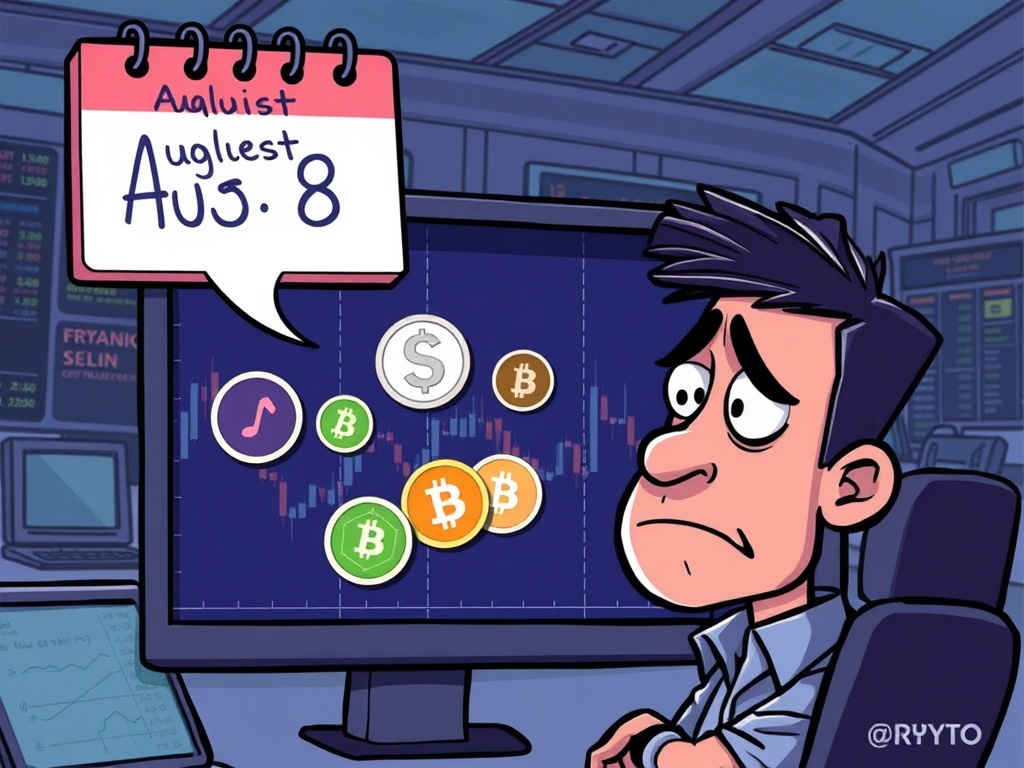BitcoinWorld

Bybit Delisting: Urgent Alert for Four Trading Pairs on August 8
In the fast-paced world of cryptocurrency, staying informed is paramount. Major announcements from exchanges can significantly impact your digital asset portfolio. Today, we bring you an urgent update from Bybit, a prominent crypto exchange, regarding an upcoming change that could affect some traders. Bybit has officially announced its decision to proceed with a Bybit delisting of four specific spot trading pairs from its platform. This move, scheduled for August 8, 2024, at 08:00 UTC, requires immediate attention from users holding these assets.
What’s Happening: The Specifics of the Bybit Delisting
Bybit, a leading global cryptocurrency exchange, has made a decisive move to streamline its spot trading offerings. The exchange’s official website published an announcement detailing the removal of four particular trading pairs. This Bybit delisting action is a standard operational procedure for exchanges looking to maintain market health and compliance. Users engaged in trading these specific pairs must be aware of the impending deadline to avoid any potential disruption to their holdings or trading strategies.
The affected trading pairs are:
| Trading Pair | Delisting Date & Time (UTC) |
|---|---|
| RPK/USDT | August 8, 2024, 08:00 |
| AEG/USDT | August 8, 2024, 08:00 |
| EGO/USDT | August 8, 2024, 08:00 |
| LUCE/USDT | August 8, 2024, 08:00 |
This means that after the specified time, users will no longer be able to place new orders or execute existing orders for these pairs on Bybit’s spot market. It is crucial for traders to understand the implications and take appropriate action before the deadline.
Why Do Exchanges Announce a Bybit Delisting?
A Bybit delisting, or any exchange delisting, is not an uncommon occurrence in the cryptocurrency space. Exchanges routinely review their listed assets to ensure a healthy and secure trading environment. Several factors can lead to such a decision:
- Low Liquidity and Trading Volume: Assets with consistently low trading activity can create an inefficient market. They may not generate sufficient fees for the exchange and can lead to poor price discovery, making it difficult for users to buy or sell at fair prices.
- Project Inactivity or Failure: If a crypto project becomes inactive, fails to meet its roadmap, or shows signs of abandonment by its development team, exchanges may delist it to protect users from holding worthless assets.
- Regulatory Concerns: The evolving regulatory landscape plays a significant role. If a token falls out of compliance with new regulations or is deemed a security in certain jurisdictions, exchanges might delist it to mitigate legal risks.
- Security Vulnerabilities: Discovery of critical security flaws or repeated exploits associated with a token can lead to its removal to protect user funds and the exchange’s reputation.
- Performance and Quality: Tokens that do not meet the exchange’s performance standards, such as network stability, wallet maintenance, or overall project quality, can be subject to delisting.
While Bybit’s official announcement did not specify the exact reasons for this particular Bybit delisting, it is generally understood to be part of their ongoing efforts to optimize their trading ecosystem and ensure a high standard for listed assets.
How Does a Bybit Delisting Impact Your Portfolio?
For traders holding RPK, AEG, EGO, or LUCE tokens on Bybit, this Bybit delisting announcement carries immediate implications. The primary impact is the cessation of trading for these pairs on Bybit’s spot market. This means:
- Loss of Trading Functionality: After August 8, you will not be able to buy or sell these tokens against USDT on Bybit. Any open orders will be canceled automatically.
- Liquidity Reduction: While the tokens themselves do not disappear, their liquidity on Bybit will cease. This could make it harder to sell them if Bybit was your primary exchange for these assets.
- Potential Price Volatility: Delisting announcements can sometimes trigger price drops for the affected assets as holders rush to sell or move their funds.
- Need for Action: Inactive holdings on the exchange could become problematic if you do not take steps to manage them.
It is important to understand that a Bybit delisting does not mean the tokens cease to exist or are worthless. It simply means they will no longer be tradable on the Bybit platform. The tokens might still be tradable on other exchanges or hold value in a private wallet, depending on the project’s status.
What Are Your Options After a Bybit Delisting?
If you are affected by this Bybit delisting, prompt action is advisable. Here are your primary options:
- Sell Before the Deadline: The simplest approach is to sell your RPK, AEG, EGO, or LUCE tokens for USDT (or another supported cryptocurrency) on Bybit before the August 8 deadline. This allows you to convert your holdings into a stable asset or another cryptocurrency you wish to keep on Bybit.
- Withdraw to a Private Wallet: If you believe in the long-term potential of these projects and wish to hold the tokens, you can withdraw them to a personal, non-custodial crypto wallet (like MetaMask, Trust Wallet, or a hardware wallet). This gives you full control over your assets. Ensure you use the correct network for withdrawal.
- Transfer to Another Exchange: Research if RPK, AEG, EGO, or LUCE are listed and actively traded on other reputable cryptocurrency exchanges. If so, you can transfer your tokens to an account on one of these exchanges to continue trading them. Always verify the receiving address and network to prevent loss of funds.
Bybit usually provides a grace period for withdrawals after a delisting. However, it is always best practice to complete any necessary transactions or transfers well in advance of the announced date to avoid last-minute issues or potential network congestion.
Beyond the Bybit Delisting: Broader Market Implications
While a specific Bybit delisting impacts a limited number of users, such events are a reminder of the dynamic nature of the cryptocurrency market. They underscore several important principles for all crypto investors:
- Due Diligence is Key: Always research projects thoroughly before investing. Understand their fundamentals, team, technology, and community activity.
- Diversification: Spreading your investments across various assets and even different exchanges can help mitigate risks associated with single project failures or exchange-specific actions.
- Stay Informed: Regularly check official announcements from exchanges and projects you hold. Subscribing to news alerts and following official channels can keep you ahead of important changes.
- Self-Custody: For long-term holdings, consider moving assets to a private wallet where you control your private keys. While exchanges offer convenience, they also introduce counterparty risk.
The continuous review and occasional delisting of assets by exchanges like Bybit are part of the industry’s maturation process. It reflects an ongoing effort to maintain healthy markets, protect users, and adapt to evolving standards and regulations. For the informed trader, each Bybit delisting serves as a valuable lesson in risk management and proactive portfolio management.

In conclusion, the upcoming Bybit delisting of RPK/USDT, AEG/USDT, EGO/USDT, and LUCE/USDT on August 8, 2024, is an important event for affected traders. By understanding the reasons behind such actions and taking proactive steps, you can navigate these changes effectively and continue to thrive in the exciting world of digital assets. Ensure you manage your holdings well before the deadline to prevent any inconvenience.
This post Bybit Delisting: Urgent Alert for Four Trading Pairs on August 8 first appeared on BitcoinWorld and is written by Editorial Team





